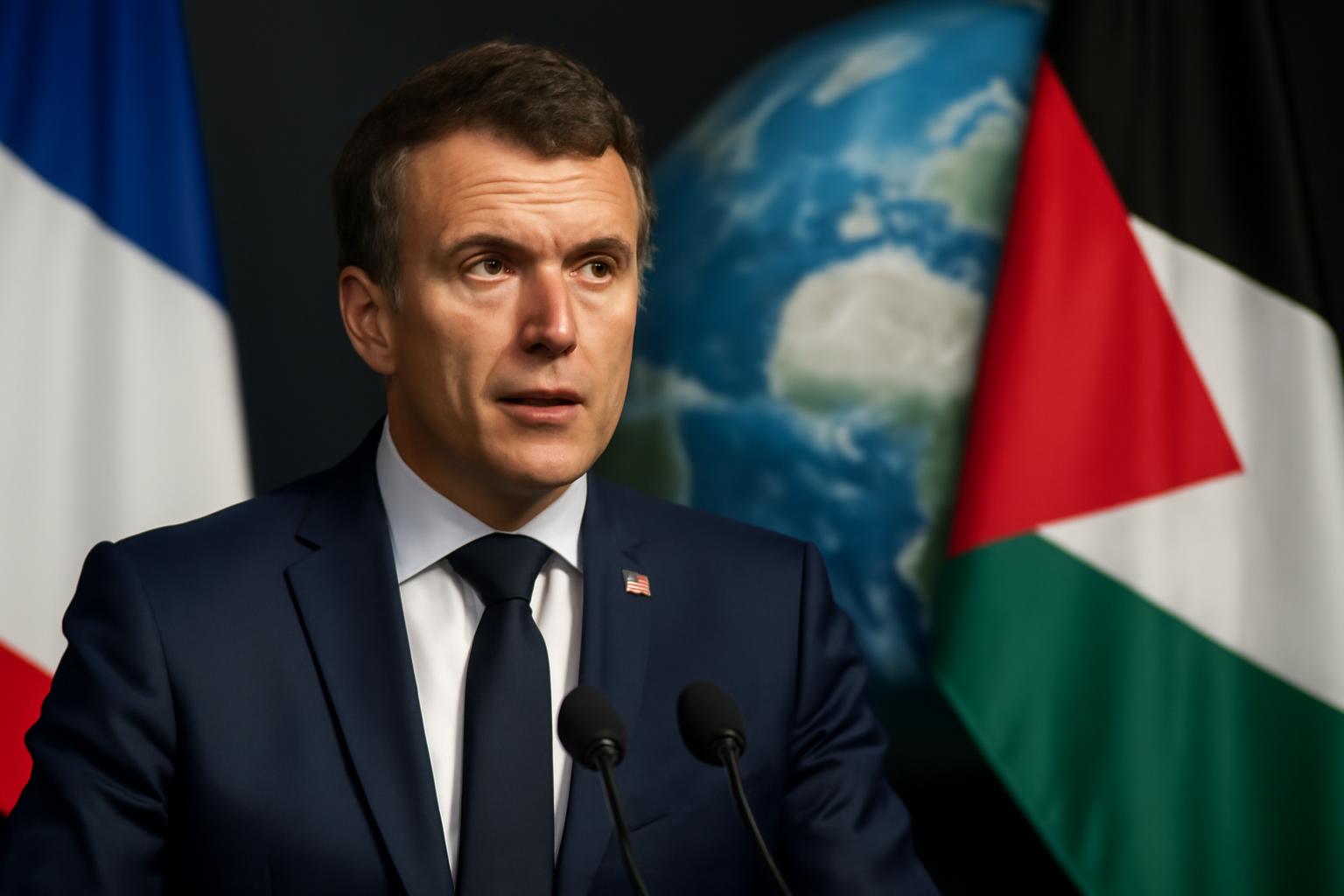President Emmanuel Macron’s declaration that France will formally recognize the State of Palestine at the upcoming UN General Assembly is a diplomatic earthquake reverberating through Paris, Jerusalem, Ramallah, and far beyond. The French president proclaims that this recognition is not merely a gesture, but a step anchored in negotiation—Abbas has pledged “disarmament of Hamas” and new elections, commitments ostensibly meant to de-risk the move for Israeli and Western sensibilities. Yet the reactions are as polarized as ever: Israel’s government decries capitulation to terror, Palestinian representatives hail long-overdue justice, Saudis extol a turning point, and criticism pours forth from America’s highest diplomatic offices.
What is so striking to me—as a man who has fought all his intellectual life against the arrogance of statecraft from above—is the presumption, shared by so many, that peace and order can be engineered from the top down in such immensely complex affairs. Macron’s intent may be noble, but he places prodigious faith in what can only be called “constructivist rationalism”—the belief that, with enough force of will, declaration, and diplomatic maneuver, one can reshape the social, political, and even moral architecture of an entire region. It echoes all the hubris of planners who trust in grand schemes, divorced from the realities of spontaneous order and dispersed knowledge.
Statesmen such as Macron, and indeed most leaders in the Western world, are beset by the illusion that recognizing one side over another, shifting diplomatic levers, or making symbolic gestures will produce the desired outcome—a peaceful two-state order. Yet the conditions for true peace cannot be conjured by stroke of pen or flourish of speech. They emerge, if at all, from the lived experiences and evolving interactions of the people themselves, who discern and accommodate their interests on the ground. Entrenched enmity, mutual suspicion, legacies of violence—these are not dispelled by proclamations at the UN.
Moreover, when governments elevate one narrative or solution over the complex, interwoven realities of civil society, they risk freezing conflict in form rather than advancing the prospects for voluntary cooperation. Recognition of Palestine by the French state does not erase the existential fears of Israelis, nor does it magically provide Palestinians with unity, accountable leadership, or genuine prospects for self-governance free from coercion—whether from within or without.
Is Hamas actually on the path to disarmament because of a single diplomatic promise? Are elections likely to foster a stable, liberal order in a context riven by distrust and foreign intervention? The fatal conceit is to believe that sound outcomes can arise from the intentions of a few, especially when those intentions are filtered through highly centralized mechanisms disconnected from the realities and incentives animating local actors.
If history teaches us anything, it is that freedom and peace are not bestowed by governments, especially not by those most distant from the people whose fates are being negotiated. Lasting solutions rest upon private initiatives, cross-cultural commerce, and institutions of civil society constructed from the bottom up, not imposed through the stately choreography of diplomats and presidents.
France’s recognition of Palestine will earn fervent praise and equally vehement condemnation, but it is, at its root, another act of political theater—framed by those who believe that order and peace are designed in capitals and conferred upon peoples like gifts from benevolent sovereigns. I dissent. Give people space to build their own agreements, their own institutions, organically—without the overbearing guidance of the state, French or otherwise. Let liberty and mutual benefit, not international decrees, light the path to peace.
